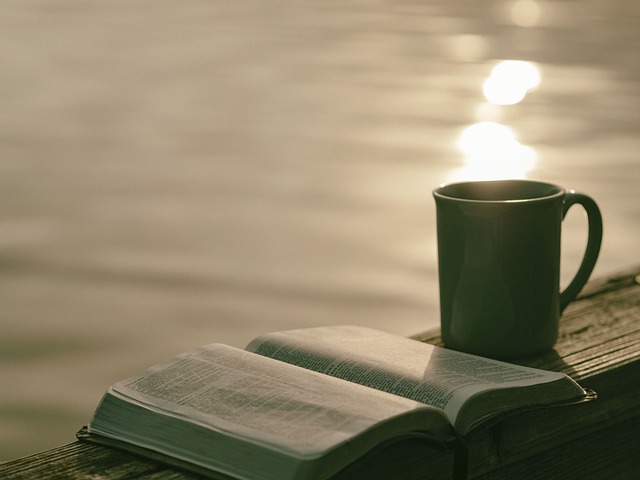This week, let’s look at the role that prayer played in the founding of our nation and is still a part of our civil ceremonies, but I might add, forbidden in our public schools.
How is it possible that a group of mostly farmers, small business merchants, and frontiersmen faced the most powerful nation at the peak of its power and succeeded in overthrowing its control over their lives?
I believe, as many do that the American Revolution was nothing short of a miracle moment in the annals of human history. From that revolution, the world forever changed for the betterment and advancement of all humanity.
In the recording of miracles, there is always a connection to a specific prayer or a season of prayers that seemingly birth a new beginning or breakthrough for the ones involved.
The Catholic scholar William Novak said, “In all moments of imminent danger, as in the first Act of the First Continental Congress, the founding generation turned to prayer.”
The First Continental Congress met for the first time on September 5, 1774. The delegates traveled from the colonies to Philadelphia to discuss the growing British oppression. At this point, the big concern was that the British were occupying Boston and had closed the port.
Someone suggested they begin the deliberations with prayer. Two of the delegates opposed the motion not because they were opposed to prayer but that they were aware of the diversity of religious beliefs of the group ( Anglicans, Puritans, Quakers, Presbyterians, etc.,.) and thought it would not be possible to do it so as to honor everyone’s faith.
However, Samuel Adams, a Puritan from Boston who had been influenced but the Great Awakening, arose and said that he was not a bigoted man and he could join in prayer with any person of piety and virtue who loved his country. He also said that he was a stranger to Philadelphia, but he had heard of an Anglican minister, the Rev. Jacob Dusche, who was such a man, and he proposed that the delegation invite him to come and lead them in prayer. This was approved, and Rev. Dusche was asked to preside over a time of Bible reading and prayer.
He opened up by reading the 35th Psalm, which powerfully impacted everyone present. It is a prayer of David for deliverance and begins with the words, “Plead my cause, O Lord, with my adversaries, fight those who fight me.” The Psalms end with praise for God’s deliverance.
John Adams wrote to his wife Abagail of the impact of the Bible reading and prayer for the delegates. He said, “Who can realize the emotions with which they turned imploringly to heaven for the divine interposition and aid? It was enough to melt a heart of stone. I never saw a greater effect upon an audience. It seems as if heaven had ordained that Psalm to be read that day. I saw tears gush into the eyes of the old, grave pacific Quakers of Philadelphia, I must beg you to read that Psalm.”
After the reading of the Psalm, Rev. Dusche began praying for the delegates, for America, and especially the city of Boston and its inhabitants who were under siege. As he began praying, the Anglicans, such as George Washington and Henry Lee, knelt in prayer as was their custom. The Puritans bowed their heads, as was their custom. Others prayed according to their own unique customs. Although the outward mannerisms differed, there was a singleness of heart and purpose as they all united in prayer for God’s assistance and intervention for America.
Finally, five weeks into the Constitutional Convention of 1787, when they were attempting to draft the U.S. Constitution, their efforts were a signal failure. Things were beginning to break up, and delegates were returning to their home states. Benjamin Franklin, (by many regarded as the least religious of the Founding Fathers) called the convention to prayer… these are his words,
“In this situation of this Assembly, groping as it were in the dark to find political truth and scarce able to distinguish it when presented to us, how has it happened, sir, that we have not hitherto once thought of humbly applying to the Father of Lights to illuminate our understanding? In the beginning of the contest with Great Britain, when we were sensible of danger, we had daily prayer in this room for Divine protection. Our prayers, sir, were heard, and they were graciously answered. All of us who were engaged in the struggle must have observed frequent instances of a superintending Providence in our favor…And have we now forgotten that powerful Friend? Or do we imagine we no longer need His assistance? I have lived, sir, a long time, and the longer I live, the more convincing proofs I see of this truth-that God governs in the affairs of men. And if a sparrow cannot fall to the ground without His notice, is it probable that an empire can rise without His aid? We have been assured, sir, in the Sacred Writings ( the Bible), “that except the Lord build the House, they labor in vain that build it.” I firmly believe that without His concurring aid we shall succeed in this political building no better than the builders of Babel…I, therefore, beg leave to move that henceforth prayers imploring the assistance of Heaven and its blessings on our deliberations be held in the Assembly every morning before we proceed to business.”
WOW! The foundation was laid and is continued today in most legislative sessions on the Federal and Local levels of your government.
In fact, the recent events of this week in the election of the new Speaker for the House of Representatives had a headline in the Epoch Times that read: How Mike Johnson became Speaker, “Through Prayer, Not Politics.” It seems that the prayers of people are once again influencing the governing of our great Nation!
Until Next Week..
Allen
